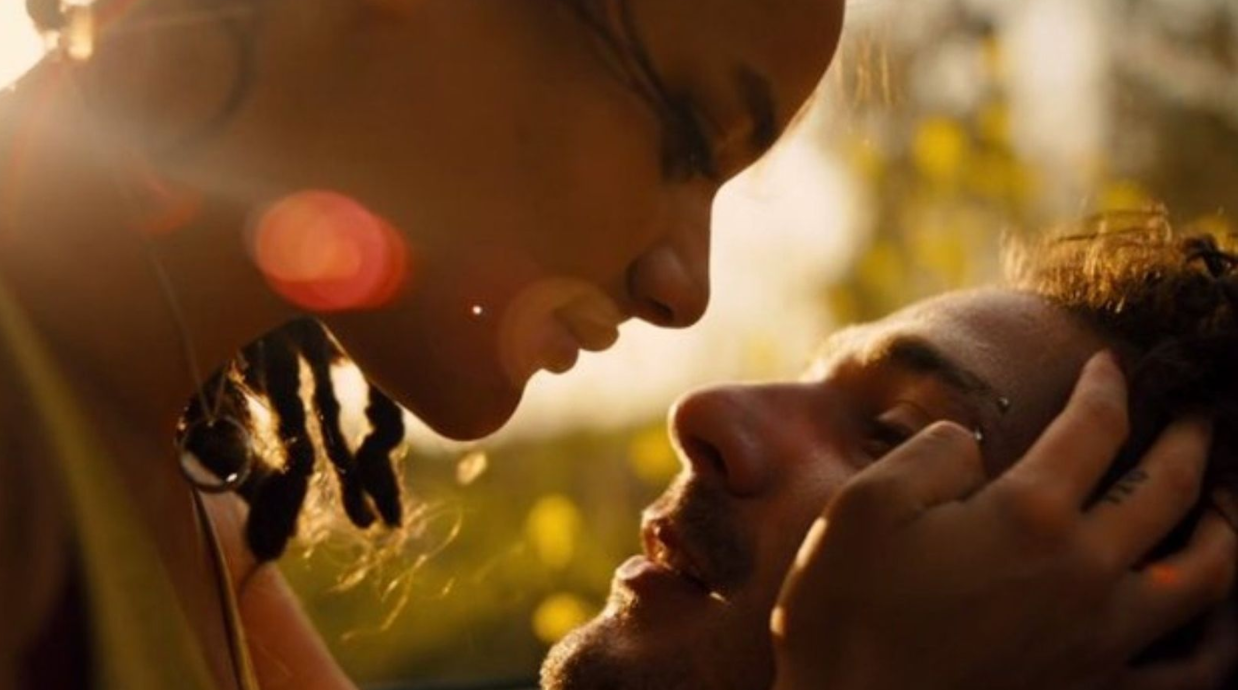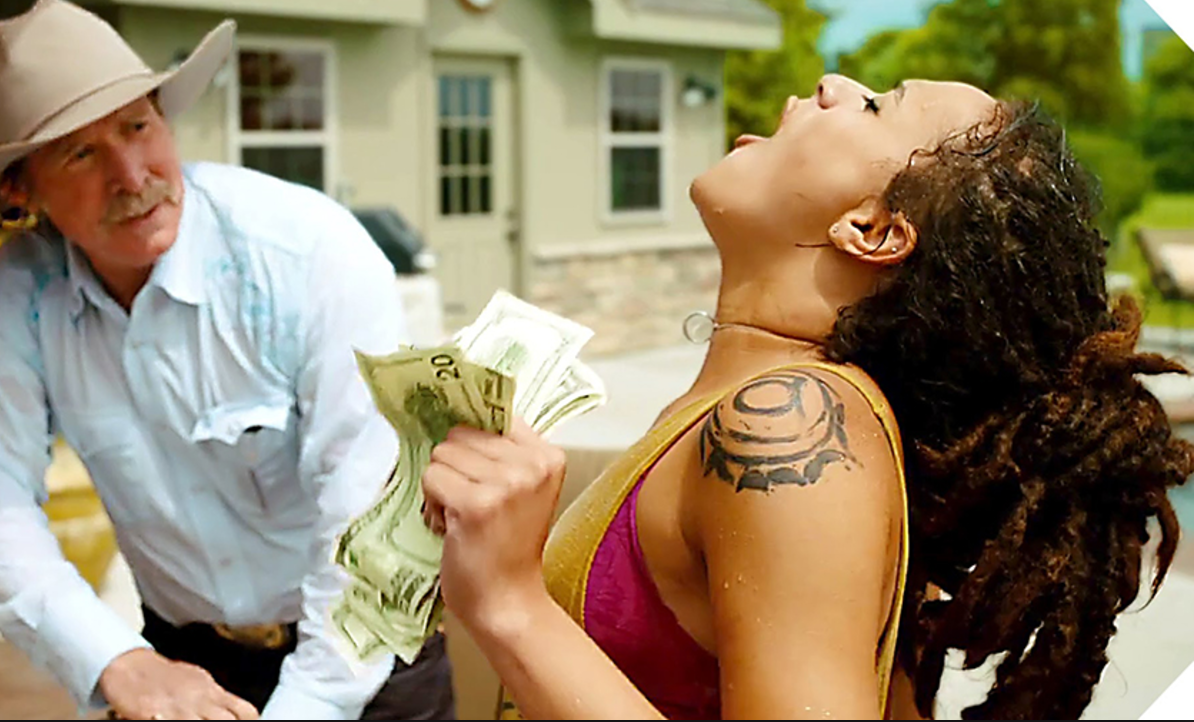“American Honey” meanders along with a group of reckless youth who embody all of America except for its proverbial dream. Kicking off the spring semester’s Wesleyan Film Series Wednesday night at the Goldsmith Family Cinema, the film may have initially drawn students to see what in the hell Shia LaBeouf would do on the silver screen after his recent antics—or maybe just to see him naked—but they all stayed through the 2-hour and 40-minute epic because of the film’s beautiful composition and sympathetic cast.
Alongside LaBeouf, “American Honey” stars Sasha Lane, who plays the film’s heroine, Star, in her feature film debut. Star is first shown rummaging for scraps of food with her two younger siblings, who drop as many F-bombs as the countless pieces of trash they discard in their search for dinner, which ends up being a lukewarm discarded Thanksgiving-style turkey. Soon after, she catches a glimpse of a rat-tailed rebel in a beat up white van, Jake (LaBeouf). Jake is the deputy ring-leader of a crew of misfit toys who, for one reason or another, have fallen through the cracks of the American safety net, and now use phony sob stories to sell magazines to rich suburbanites who have achieved the American Dream that has been forbidden from people like Jake and Star.
The crew is sympathetically young, wild, and free—even impressive in their entrepreneurial acumen. However, they are also gullible and naïve, giving upwards of 80% of their earnings to their boss at the magazine, Krystal (Riley Keough), who is not much older than her foot soldiers but certainly outranks them in cynicism and wrath.
Ultimately, Star’s journey to self discovery traps her in a love triangle with Jake and Krystal, the latter of whom treats Jake as more of a boy-toy than an equal partner. Star somehow manages to avoid exile from Krystal while carrying on an affair with Jake, which—much to LaBeouf buffs’ delight—shows the former child prodigy completely naked in several pornographic sex scenes that linger on without an accompanying score. Claiming she is 18, Star begins her romance with Jake after escaping a sexually abusive father back home, and throughout the film receives unwelcome male gazes that render her vulnerable in pursuit of simply trying to sell magazines.
While “American Honey” has crisp and rich dialogue, its experimental cinematography is what brings the odyssey to life. Going from city to city on a soundtrack of contemporary American hit music, the camerawork inside the van provides both intimate close-ups and stunning landscape shots that make one feel like they’re physically in the van, taking part in the same voyeuristic and anxious curiosity that Star experiences. The day-and-night, work-hard-play-hard nature of the crew’s work allows for a full spectrum of experimentation with light and color, especially around dusk when Krystal collects everyone’s daily earnings.
The constantly moving and at times shaky camera gives the film a dually documentary and phantasmal quality, providing a lingering look into a world that seems too raw and rowdy to be real. Just like Star, we are seeing inside an overlooked world for the first time – bright lights, disorienting chaos, and all.
America’s current political climate makes “American Honey” unexpectedly timely in its honest and relentless depiction of America’s forgotten youth. Both Star and Jake acknowledge that no one has ever asked them what their dreams are, which is made more poignant by their constant need to lie about such dreams. In one scene outside of Kansas City, Jake attempts to convince a suburban Christian woman that he is trying to raise money to study politics in college. The woman laughs. When Star intervenes to admonish her condescension she is condemned as being possessed by the devil. Thus, Star and Jake come across another failed sale, another head turned the other way.
Outside of their white van and its bumping tunes, these kids are seen by their fellow citizens as trash. Most of them are referred to and even embrace the term “white trash,” with the exception of the racially ambiguous Star. While politics are effectively absent from the film, one can’t help but think of the recent discourse of the “forgotten working class whites,” who in this case find themselves with enough security to even condescend to Krystal’s crew.
While “American Honey” certainly lacks a coherent plot and structure, it may not necessarily have benefited from either of those. It’s a long film that somehow never gets tiring or boring. It’s not predictable, and hopefully for most viewers, it is entirely unfamiliar. There is no moral stance nor didactic lesson to be learned from “American Honey,” just a world to be discovered that will broaden one’s emotional reservoir.


